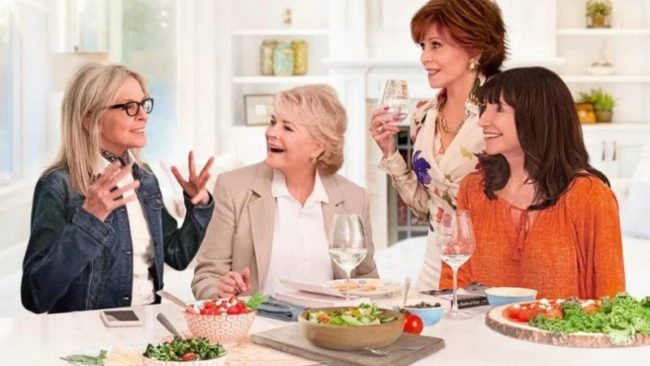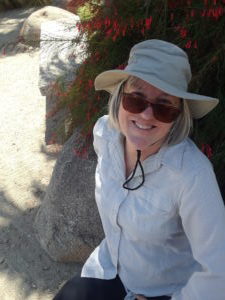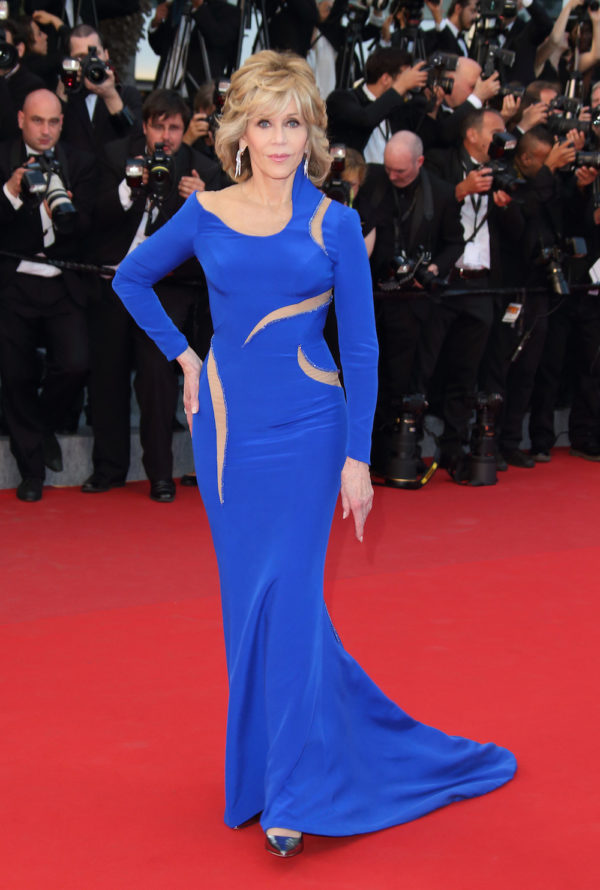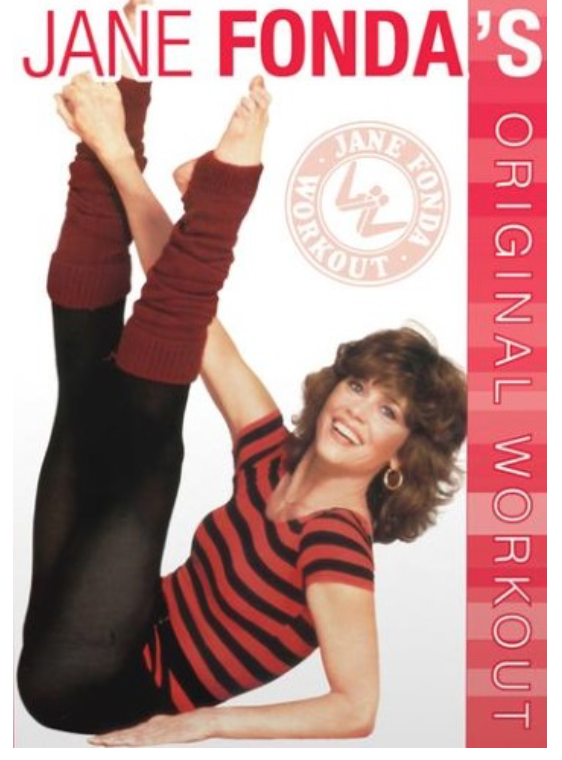GUEST POST BY JANET WEIL
“Wow… what a body – she’s incredibly well-proportioned!”
The thought bubble over my head filled in as, a few months ago, my husband and I watched on Netflix a rather dull film (California Suite) with only 2 characters. Relaxed West Coast ex-husband, played by Alan Alda, hosts tense East Coast ex-wife, played by Jane Fonda, in his lovely Malibu home as they hash out where their daughter is going to finish high school.
Mid-movie, the two move their long conversation from the house to the beach. Viewers are spared the sight of lanky Alda changing into his swim shorts; Fonda shedding her career gal duds for a green one-piece is, or was for me anyway, the highlight of the film. Her movements are delicate and precise, and her middle-aged body is slim, fit, feminine, and graceful, with long limbs and enviable waist-hip ratio.
Fonda’s character is ambitious, anxious, demanding — in a word, ragged. But her body: no figure could be more suited to its zeitgeist, more perfectly “finished”.
Forty years on, Jane Fonda, having restarted her acting career in her mid-60s, is still slim, fit, feminine and graceful. Fashions in women’s bodies and faces change, however. This shape-shifter of an actress-activist has kept up by adding, removing, adding again breast enhancements as well as choosing facial surgeries, fillers, Botox, laser skin resurfacing — and makeup, expertly cut and colored hair (different for each role), and a classy wardrobe. Added to all that is what she is most famous for: exercise, from aerobics to hiking to yoga to Pilates.
Jane has spared no effort or expense, and the result, especially on the red carpet, is eerie: a woman of 80 who has achieved (visual) agelessness.
Is showing one’s age (especially after age 65) becoming a taboo for successful women in public? Is Jane Fonda a role model for those who can afford all these enhancements, or a warning of going too far?
Jane Fonda doesn’t look like my idea of “an old woman” — is that my internalized ageism, or my valuing “the real faces and bodies” of elderly women, including my own?
Fonda has spoken about “having work done,” as in this interview with Diane Rehm. “The message I received growing up was: if you’re not perfect, you won’t be loved.” Her drive for physical perfection reveals a corresponding desire to be loved that is awesome in its intensity and longevity.
So what is my “problem” with Jane Fonda? “Why are you wasting your energy thinking about this?” my husband asked.
It’s this: I can say neither “Yes” nor “No” to what Jane Fonda means to me. I want to say “Yes” to her activism, her work ethic, her surviving bulimia, male abuse and hostility and much more. But I also want to say “No” to what feels like her maniacal focus on control; a double-edged message of caring about the world, while at the same time tweaking, smoothing, beautifying. luxuriating in privilege.
In my ambivalence about Jane Fonda, I feel envy and resentment of her wealth; desire for cosmetic procedures followed by self-disgust for that desire, and regret that her tremendous body of work as an actress is being overshadowed by public focus on her body.
I think I’ll skip“Book Club”and read a book — or write one – instead!

Book Club, the new film featuring older actresses, Diane Keaton, Candace Bergen, Fonda, & Mary Sternberg, who have all had “work” done, with the exception of Diane Keaton.
 Janet Weil, former CODEPINK staffer, is now working on a book project, “Never Heard of Her” and enjoying life in “The Two P’s” – Portland, Oregon and Palm Springs, California. You can find her on twitter, where she posts frequently: @JanetRWeil.
Janet Weil, former CODEPINK staffer, is now working on a book project, “Never Heard of Her” and enjoying life in “The Two P’s” – Portland, Oregon and Palm Springs, California. You can find her on twitter, where she posts frequently: @JanetRWeil.



